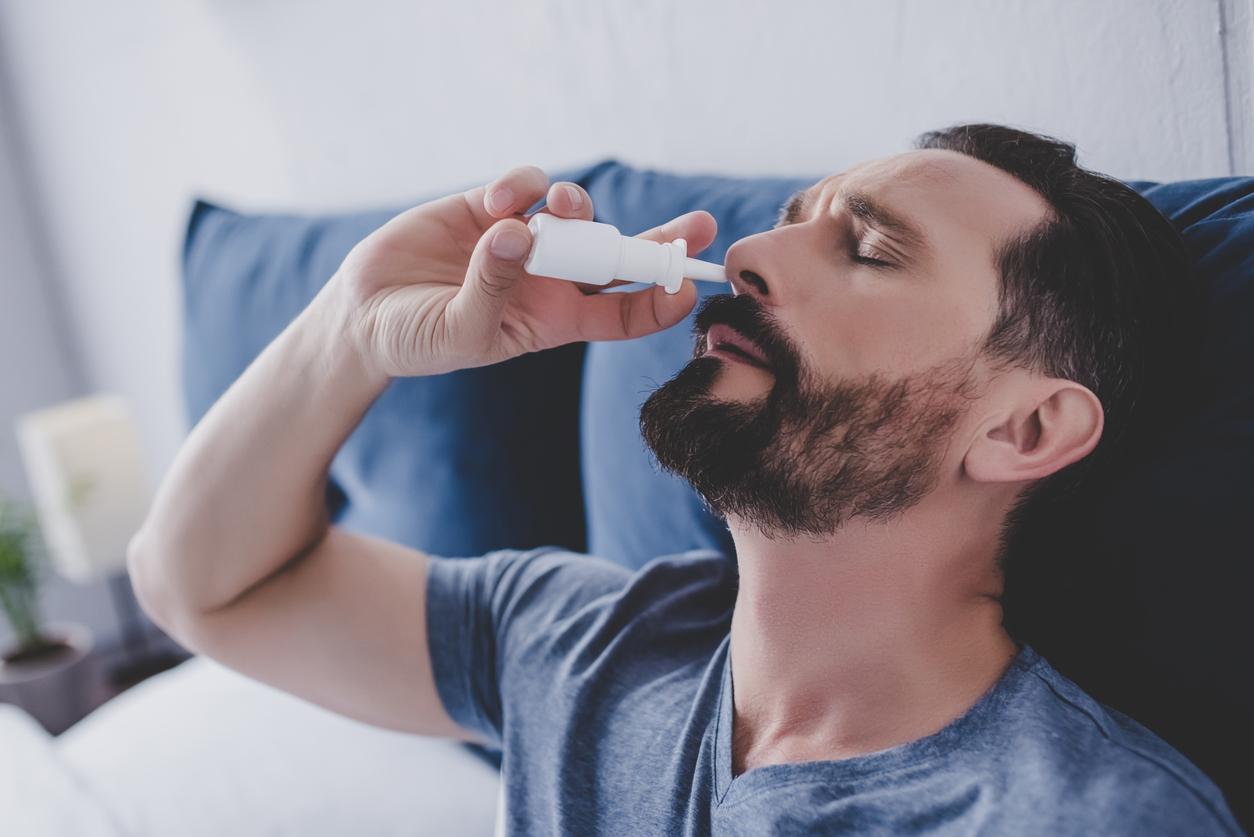Researchers have successfully reduced the amount of SARS-CoV-2 in the upper airways using a spray that is injected into the nose.

- Still active in France, Covid-19 is an infectious disease caused by the SARS-CoV-2 virus.
- “To prevent transmission of Covid-19, it is necessary to maintain a low amount of virus in the upper airways,” says Dr. Jacco Boon.
- To try to achieve this result, his team immunized hamsters with the iNCOVACC nasal vaccine or the Pfizer/BioNTech intramuscular vaccine.
According to a new study published in Science Advances, administering drops into the nose could stop the spread of the virus.
“To prevent transmission of Covid-19, it is necessary to maintain a low amount of virus in the upper airways,” said research author Jacco Boon, also a Ph.D. and professor of medicine at the University of Washington, in a press release. “The less virus there is to begin with, the less likely you are to infect someone else if you cough, sneeze or breathe near them.” he adds.
“In a pandemic, this is the type of treatment that should be used”
To try to achieve this result, his team immunized hamsters with the iNCOVACC nasal vaccine or the Pfizer/BioNTech intramuscular vaccine. Five weeks later, they exposed them to hamsters infected with SARS-CoV-2.
After three days, they took nose samples from the hamsters. In both groups, most hamsters tested positive (12/14 for the nasal vaccine and 15/16 for the intramuscular vaccine), but the amount of virus in the mucus and lungs was significantly reduced in the animals that had received the spray.
Once these data were collected, the hamsters that received nose drops were housed with a second cohort of vaccinated and unvaccinated hamsters. Among the rodents exposed to hamsters that had been immunized intranasally, none tested positive for Covid-19 (whether they had been vaccinated or not). In comparison, 60% of the animals in this second cohort exposed to hamsters vaccinated intramuscularly tested positive.
“In the event of an epidemic or pandemic, this is the type of treatment that should be used”Jacco Boon said enthusiastically. “Mucosal vaccines are the future of vaccines against respiratory infections,” he concludes.

“Anyone can get Covid-19 and die from it”
“In the context of the continued active circulation of SARS-CoV-2, particularly during large gatherings this summer and in medical-social establishments, the adoption of barrier gestures remains an effective means of protecting against respiratory infection and its complications”, remember Public Health France in its latest report on Covid-19.
Covid-19 is an infectious disease caused by the SARS-CoV-2 virus. Most people infected with the virus experience mild to moderate respiratory illness and recover without needing special treatment. Some, however, become seriously ill and require medical care. “Anyone, at any age, can get Covid-19 and die from it,” underlines WHO.

















